Functional Ecology is delighted to announce that the winner of the 2023 Haldane Prize is Indra Boving!
The Haldane Prize is awarded annually for the best paper published in the journal by an early career researcher.
Winner: Indra Boving
In this blog post, we ask Indra some questions about her research and career to date.
How did you get into ecology?
I spent a lot of time outside as a kid and can remember spending long afternoons climbing the branches of an Eastern hemlock outside my parent’s home, or exploring the oak and pine woodlands around my town in Rhode Island, USA. Later, during my undergrad in Oregon, I took some inspiring fieldwork-based ecology classes and spent as many weekends as I could hiking in the Cascade mountains. Studying ecology, for me, started as a way to spend even more time outside, but it quickly became more than that as I learned to appreciate how a deep understanding of plant function could expand my experience of the world. When you begin to comprehend how small-scale changes in plants influence larger ecosystem processes, it feels like discovering new dimensions of space and time. I still pinch myself that I get to spend my days thinking about and being around plants (usually in really stunning places), but really attribute my interest in ecology to a childhood spent outside and having opportunities to do field-based research early in my education.
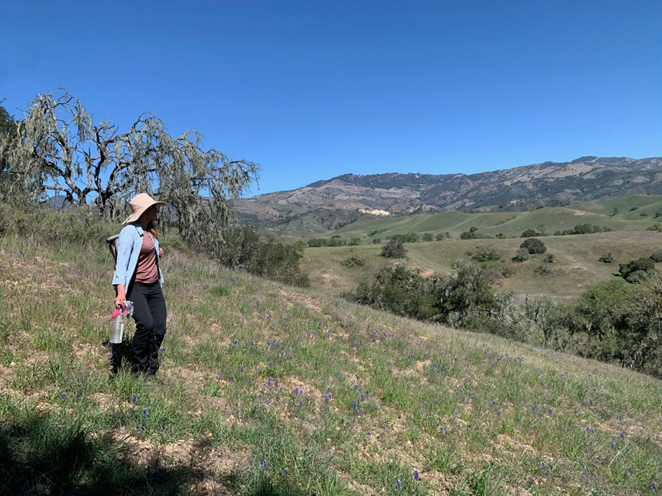
What is your research about and how does it advance the field?
Our research provides a link between tissue-level drought response in chaparral plants (the wilting, or turgor loss, point of leaves) and flammability. These findings point to a plant-level mechanism for landscape-scale wildfire patterns and highlight the importance of vegetation and plant physiology for understanding wildfire characteristics. Hopefully our work can inform models of fire risk and fire- management, particularly following drought events.
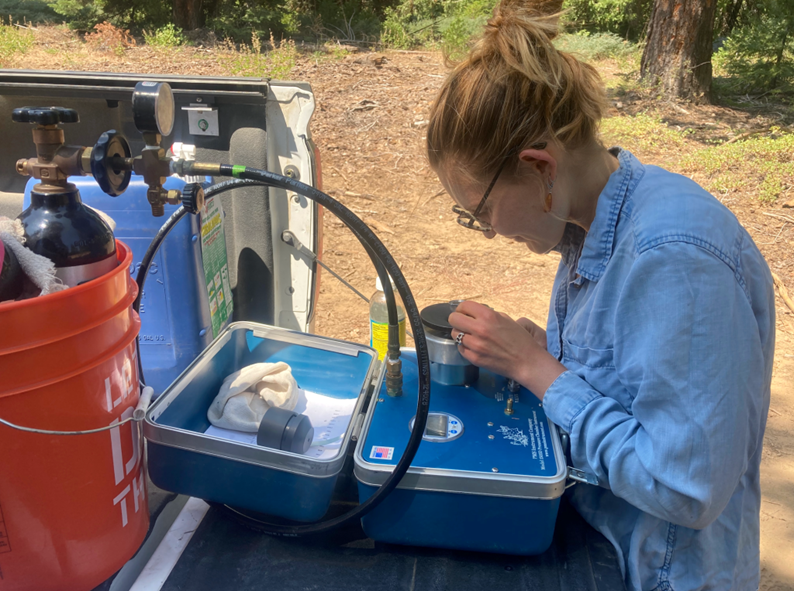
Have you continued this research and if so, where are you at now with it?
I’m currently working with collaborators to study how flammability varies across species that are commonly used in landscaping around Santa Barbara and in other California species outside of chaparral. Our paper has also inspired me to look more deeply into how plant moisture and physiological drought stress are linked in other species, and how, by understanding the extent of spatial and temporal variation in indicators of plant stress, we might improve our ability to use tools from remote sensing to measure fuel moisture and to model drought and fire risk.
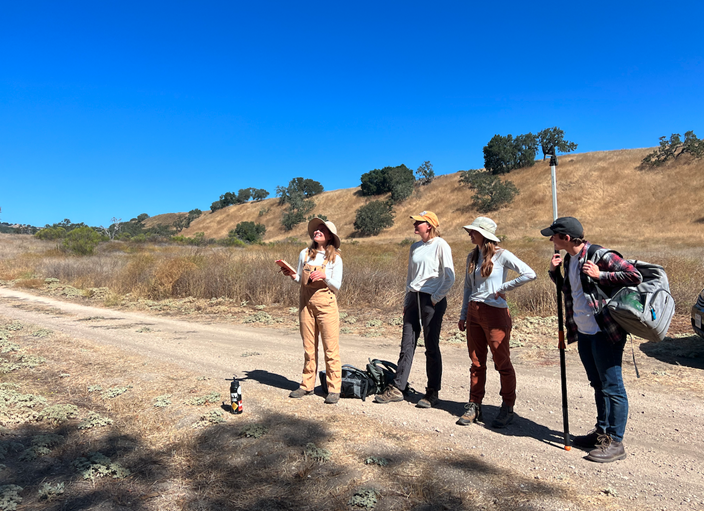
What did you enjoy most about conducting this research?
This research was my first real foray into leading a field and lab campaign, and it was really rewarding to see our story come together after a lot of hard work. Ecological research is such a sweet blend of gritty fieldwork, precise lab methods, and communication through writing and statistics, and it was both fun and challenging to lead all steps of the process. I was also really lucky to work with an amazing undergrad, Joe Celebrezze, who helped make the whole process of collecting data for this paper really fun – especially on days when your methods won’t work or your code won’t run or you can’t go do fieldwork because there’s a global pandemic, it’s the people that really make research a joy.
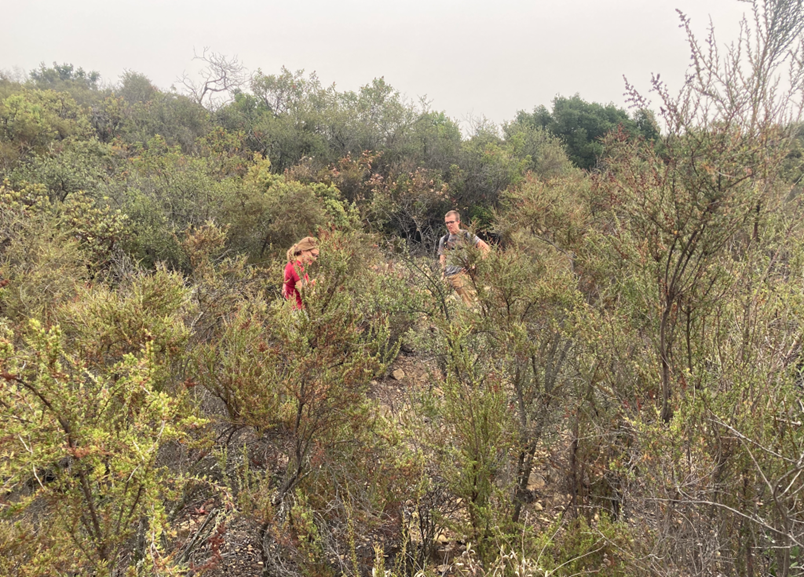
Were there any funny experiences or surprising discoveries from this research?
We ended up doing some of this research during the COVID-19 pandemic, where there were strict guidelines on the use of campus laboratory space. As a result, I did a lot of the methods troubleshooting at home using plants from around my neighbourhood and with lots of trips to the local hardware store. The staff there were helpful and friendly, but it always took some time to fully explain what I needed to buy – supplies to build a ‘flammability chamber’ and ‘burn box’ aren’t usually what people head to a hardware store for!
What does winning the Haldane Prize mean to you?
I feel incredibly proud and honoured to win the 2023 Haldane Prize, and it’s given me new confidence as a researcher. I also want to acknowledge the guidance I received from my mentors and coauthors – research rarely happens alone, and this prize has confirmed for me that I have an incredibly supportive community. Additionally, this study took place on the traditional ancestral land of the Chumash people, the original stewards of the plant communities we researched. I hope that highlighting our fire- research might facilitate efforts to better protect these systems.
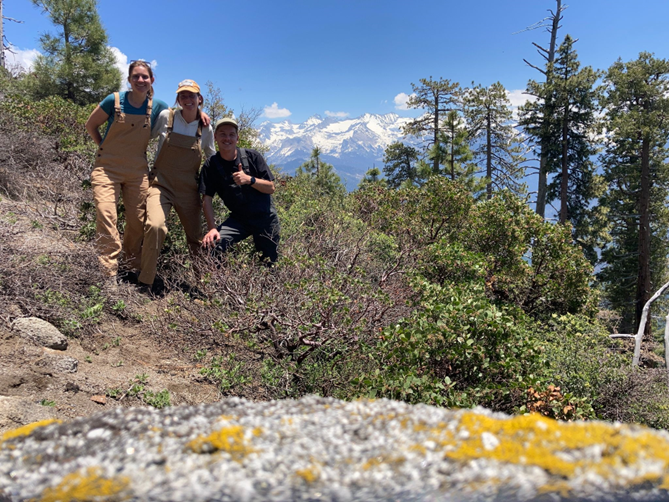
Congratulations to Indra for her award-winning work! You can read her paper, as well as all those that were shortlisted for the 2023 Haldane Prize, in our virtual issue.

